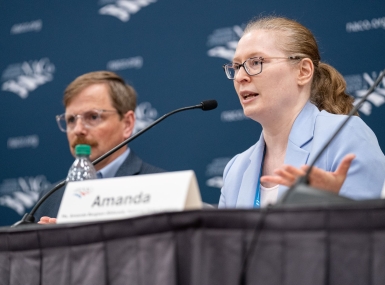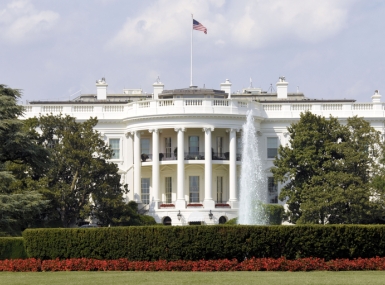Paycheck Protection Program extended through May 31
Author
Upcoming Events
Related News

Key Takeaways
On March 30, President Biden signed the PPP Extension Act of 2021 into law. The bipartisan legislation, which passed both the U.S. Senate and House of Representatives by an overwhelming majority, extends the popular Paycheck Protection Program (PPP) from March 31 to May 31 and gives the Small Business Administration (SBA) until June 30 to process loans. The program, initially established in the Coronavirus Aid, Relief, and Economic Security (CARES) Act, is a vital economic resource for counties as they work to support their local economies both during the COVID-19 pandemic and as the country pivots toward economic recovery.
The PPP is a loan initiative aimed at helping small businesses weather the economic fallout from the COVID-19 pandemic. The program provides loans to small businesses to keep workers on the payroll and, if certain conditions are met, borrowers may be eligible for PPP loan forgiveness. According to SBA, the agency tasked with administering the program, nearly 9 million PPP loans have been approved, totaling over $734 billion.
Extending the application period for an additional two months provides numerous benefits to counties and the small businesses they are home to. The recently enacted American Rescue Plan Act, which provided an additional $7.25 billion for the program, expanded PPP eligibility to include certain nonprofit organizations and digital media companies. Extending the deadline to May 31 will allow these newly eligible entities to apply for PPP loans. The extension could also allow some small businesses who received a first draw PPP loan earlier this year to apply for a second, as eight weeks must pass between the loans. Further, giving SBA an additional 30 days to review and process PPP loans will help to ensure that more small businesses can fully take advantage of the financial assistance provided by the program.
Through workforce training, business attraction and retention and other community and economic development activities, counties are deeply invested in the health and viability of their local economies. Counties across the country have acted to support their small businesses with needed cashflow and practical guidance. Counties applaud the enactment of the PPP Extension Act of 2021 provides an additional, necessary resource for these businesses as they continue to grapple with the economic fallout of the COVID-19 pandemic.
NACo will continue to monitor any new information or possible regulations regarding the PPP. For further information on COVID-19 funding, please view NACo’s COVID-19 Recovery Clearinghouse where counties can find specific information regarding direct aid and more.
Additional Resources:
- Business Loan Program Temporary Changes; Paycheck Protection Program as Amended by American Rescue Plan Act
- Guidance on Accessing Capital for Minority, Underserved, Veteran and Women-Owned Business Concerns
- FAQ on PPP Loan Forgiveness
- U.S. Treasury Department’s CARES Act Small Business Assistance Landing Page
Resource
American Rescue Plan Resource Hub







